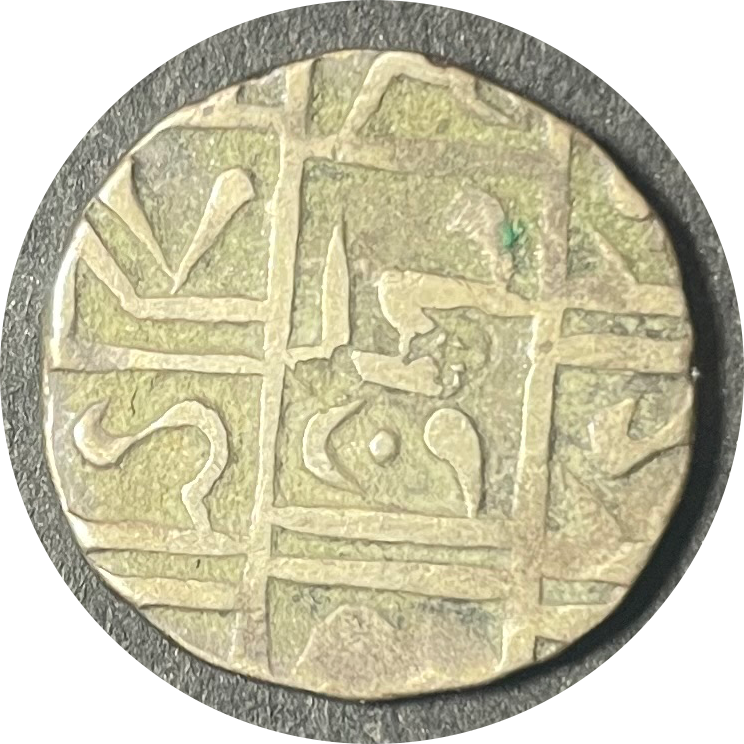

Coin Details
Country:
India
Dynasty:
Cooch Bihar
Ruler:
Dhairjendra Narayan(1765 to 1770 - 1775 to 1783)
Composition:
Silver
External Links
Description
Cooch Behar, Dhairyendranarayana (SE 1688-1693/1766-1772 AD), Silver ½ Tanka, Obv: Bengali legend \"Sri Sri/Siva Charana/Kamala Madhu/Karasya\", Rev: Bengali legend \"Sri Srima/t Dhairyendra Nara/yanasya Sake\", 4.53g, 18.41mm, (KM # 127/RB # J1.1)
Other Details
Era:
1101 AD - 1700 AD
Shape:
Round
Edge:
Plain
Rim:
Plain
Diameter:
18.41
Weight:
4.53
Face Value:
1
Issued On:
1765

Exquisite
ObverseSri Sri (mat)Pra na Na (rayana)Sya Sa (ke)ReverseSri Sri(Shi) va Cha ra (na)(Ka) ma la Ma (dhu)(Ka ra) syaNote: The horizontal line below \"va cha ra\" finishing with the vertic